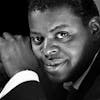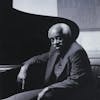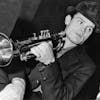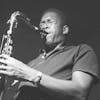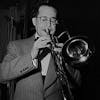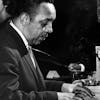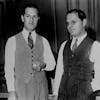Special Guest, Liz Kinnon, Pt. 2
JazzPianoSkills welcomes Liz Kinnon, a Los Angeles jazz pianist, arranger, composer, educator, and film coach.
Liz Kinnon (pianist/arranger/composer/educator/film coach), a native of Los Angeles, has performed all over the world with numerous artists, including Dizzy Gillespie, Andy Williams, Barbara Morrison, Sherwood Sledge, Kenia, Octavio Bailly, and Jackie Ryan.
Ms. Kinnon’s songwriting credits include Say Goodbye on Kenia’s Love Lives On CD. Her arrangements have been featured on a variety of recordings and live performances, including The Duke Ellington Memorial Concert with legendary jazz greats Pepper Adams, Sonny Fortune, and full orchestra; strings for Sandy Graham’s 2003 CD, By Request; tracks on jazz vocalist Jackie Ryan’s last three CD releases and ongoing performances. In May 2007, Ms. Kinnon was commissioned to write and perform her own arrangement of Smile with Maiden Voyage (17-piece big band) at the Kennedy Center’s “Tribute to Women In Jazz” and returned in 2010 for a concert to honor jazz icon Mary Lou Williams.
During the 1990s, Ms. Kinnon worked as an orchestrator for Emmy award-winning composers Richard Stone, Steve Bernstein, and Tim Kelly on cartoons Animaniacs, Pinky and the Brain, and Histeria; also for composer Shirley Walker on the feature film Mystery Men. Liz went on to compose and record the scores for the documentaries The Life and Times of Jean DePaul (2005) and Nicole Wood: Cars & Beauty (2012) in Los Angeles, CA. She has worked in music preparation for hundreds of films, live performances, and television shows, including many years on the music team for the Academy Awards.
As a young faculty member at the Dick Grove School of Music from 1984-1992, Ms. Kinnon taught classes in jazz theory, arranging, and piano. In 2009 she joined the faculty as Jazz Piano Instructor at the Colburn School of Performing Arts and in 2012 she helped to launch Colburn’s Adult Studies program, where she is currently the Director of Adult Jazz Workshops and teaches other jazz-related classes.
In 2015 Liz drew from her skills as a performer and educator to coach actor Ryan Gosling through preproduction and filming for his role as an accomplished jazz pianist in the film La La Land, for which he won the Golden Globe award for Best Actor. Since then, she has worked as a piano coach on other film projects including Lost Transmissions (Simon Pegg and Juno Temple), Covers (Dakota Johnson), Coda (Eugenio Derbez), Hollywood Stargirl (Uma Thurman and Elijah Richardson), Evolution of Nate Gibson (Hannah Riley), and Mothership.
Ms. Kinnon graduated from the Composing and Arranging Program (CAP) at the Dick Grove School of Music in 1982. She returned to school in 2006 and received a Bachelor’s Degree in Applied Studies with a minor in Communications from CSU Dominguez Hills in 2008. She was selected as one of five Los Angeles artists in 2010 for the prestigious Teaching Artist Training Program (TAAP) conducted by the Music Center Education Foundation.
Ms. Behavin’, Liz’s first solo CD, was released in March 2007. Many top international artists are featured in this dynamic merging of Brazilian, Latin, and bebop jazz.
Warm Regards,
Dr. Bob Lawrence
President, The Dallas School of Music
JazzPianoSkills
AMDG
Dr. Bob Lawrence 0:32
Welcome to jazz piano skills. I'm Dr. Bob Lawrence. It's time to discover, learn and play jazz piano. Well, last week I released part one of my interview with jazz pianist, arranger, composer, educator, and film coach, Liz Kennedy. And today, you get to enjoy part two of my interview with Liz. Now if you have not had the opportunity to check out last week's show, I want to encourage you to make the time to do so. Liz is a dynamic and passionate individual and musician whose journey is just simply remarkable. The musical path that she traveled is quite honestly one of the most inspirational stories that I have ever heard. And I have no doubt that for all of you who have listened to last week's interview, I have no doubt that after listening to Liz, you walked away with an enormous amount of hope about your own musical dreams, and aspirations. So today, we get to hear what Liz has to say about jazz education as a teacher and as a student. Once again, you will soon find out her insight into teaching and learning is profound. And yes, motivational. Both the audio and video formats, of course are available for this podcast episode. And of course, you can listen to the audio version of this episode through any of the popular podcast directories such as iHeart Radio or Spotify, Apple podcast, Google podcast, Amazon, music, Pandora, and the list goes on and on. Or you can go directly to jazz piano skills podcast.com, where you can also watch the video of the show, which I strongly recommend. It was true last week. It's true once again this week, I am beyond thrilled to welcome back to jazz piano skills. Liz Kim.
Liz Kinnon 2:50
And I use baseball terminology sometimes our sports terminology in my teaching in lots of ways because right baseball is baseball and books and nature. Besides music, give me baseball books and nature and so sorry about the Dodgers this year. Right?
Dr. Bob Lawrence 3:08
Right. What happened there? So I don't know. Who knows. Right. So well, I'm right with you. So let's talk a little bit about education. Liz. So you're you're you're currently on faculty at Colburn. Right? Yeah. So tell us a little bit about the school and your faculty position there.
Liz Kinnon 3:26
Okay. About let's see, so I taught it did groves I then the school closed for about 10 years school closed. I was freelancing, doing some teaching on my own. I got a call from somebody at Colburn saying we need a jazz piano teacher at Colburn. I think you'd be great. I think you should apply. And I said great. Because my I think at the time my son was I was taking my son over there for like string orchestra or something. And the place was very impressive. Beautiful facility. Great. Really great. Except for you have to drive downtown. So that's that's that community's bad, right? But I thought, well, I really miss being a part of a community in terms of faculty like at the Grove School, it was a community. It remains a community to this day, anybody that went there or taught there. There's a Facebook alum page, and it's just, it's just everybody that ever had anything to do with Dick grove. The degrowth school feels like they were lucky and had something special. So I missed that. And I wanted to be a part of a community. So I thought, yeah, so I said to him, do you need a degree? And he said, Yes, we required a degree and I said, Well, I don't have a degree. That's stinks, you know, I don't have a degree. And he said, I'm so sorry. You'd be great. But yeah, you need a degree. So I was really, really soul searched about that and I thought, wow, I would be I would be good. Uh, and what am I going to do about this? And I really thought about it, and I had dinner with a friend, and she just looked at me and she said, You have to go back in to get a degree, you don't want to ever have to lose a job you deserve to have or you want. Because you don't have a piece of paper, you got to do it. I was like, my kids were like, you know, maybe they were eight and nine, or seven and eight, right? And I was working, and I was doing this and this running, and how am I going, but I thought, you just gotta make it happen. So I had very few credits, but the local Santa Monica College in West LA College, I took classes, I was in class with people half my age, I just went and I gotta get, I gotta get these lower division classes. I had to take math, like college algebra, I had to take all kinds of stuff. And I did it. And then I was like, Okay, now I have to transfer somewhere. I had a long road, you know? So I started thinking, Well, I'm working, and I'm not willing to give up the work. And I'm not willing to give up time, being a good parent to my kids. So I got an honor. I looked up online programs. So there was an online program at Cal State Dominguez Hills, which is not too far from me. I also couldn't afford the time to go drive somewhere in park, and I just couldn't do right. So they had two online programs at the time. I don't know what what one of them was, like, out of the question. And the other one was called Applied Studies. Applied Studies. Boy, that's specific, right? It's a Bachelor of Science, you know, but it's online. It's a degree, it's a degree. Turns out, it was kind of like a liberal arts degree, but in, in Bachelor of Science, so the classes were slightly different than about four bars. And it was two years worth. And I said, okay, okay, I'll do that I want I need a degree. So I'll do that. So six semesters, and I would get home late at night, I'd be reading I'd be answering stuff online, I would be participating in the group discussions online, I would watch the lectures. And if I could, I'd speed them up so that I didn't, you know, I was a little impatient. And I took all those classes, and not most of them. Were pretty good. There were a couple that I like to have that time back, but three applied studies, right. Wow. Yeah. What is that? Right? Yeah, I I, bachelor of science and applied and communications minor. So coincidentally, about six months after I finished that, I got a call from the same person at Colburn. That said, we have that opening again. And I think you'd be great. And I said, that's great, because I got a degree and he said, Oh, we no longer require. I do not.
Dr. Bob Lawrence 8:00
I knew, I knew that was coming. I knew that was coming. That's hilarious.
Liz Kinnon 8:06
You know what I feel this about education. I don't regret a what, maybe just a couple of minutes to have those classes. But generally speaking, I don't regret any education I've ever had. And nobody can ever take it away from you. So I went in, I applied, I got called in for an interview along with a few other people who are frankly, stronger. They're, they're fantastic pianist in LA. And then I got called back for a second, which is they watch, you know, they watched you teach, they put you in a room, they observe you teaching something. So there were probably three of us that got down to that thing. And so they put me in a room with a 16 year old I had never met and they're sitting in the corner. And I I know that my my strongest My strength is with people. So I was very lucky because the 16 year old guy was very talented, and didn't really have much a lot of technical experience. And but he was very musical. And we just clicked we just clicked. And he played a little bit. And right away, I had a couple of things that I could tell him that made all the difference. I mean, if they had given me someone else, maybe it wouldn't have been the case. But with him. It was and after about 20 minutes, they said, We think we've seen enough and they left and I stayed in there with with the guy for another. I don't know, maybe 45 minutes. It was just such a simple, you know,
Dr. Bob Lawrence 9:32
right, right, right.
Liz Kinnon 9:35
So, I got hired. And now I'm very proud to say that that guy who helped me get the gig. Unbeknownst to him. He became my student. And then he went on to Cal State Northridge to major in Jazz Studies or jazz piano. I went to his senior recital. He is one of the few you know, there aren't many that major that that end up doing it. This guy and I'm going to give him a plug here. His name is Michael ragged knees. He is a absolutely spectacular musician, pianist writer, has his own career going he's, you know, struggling along as we all do. But he is a very, very fine musician. And now he's doing some teaching in LA and I, I love the fact that I, that's how I got the gig. And that's where he went. And so that's how I got involved there. I started teaching privately, just a few few students, few students. And then a few years in, I was asked to, to start the adults studies jazz program, because they had had the adults in with the teenagers for combos and such. And it was they wanted to have a jazz the adults to have their own thing. And so Lisa guard, who was the director of the grip jazz group said, Well, I would like for you to direct these adult group. And I thought, well, I've never I've never done that. I've never done that. I mean, I've direct I've led my own groups professionally. I've played in plenty of professional groups, but I had never directed a an amateur, you know, adult students, right. So he said, I know you're gonna do great. And I said, Okay, do you have any words of wisdom, because he had been doing this for a long time with the teenagers? And he said, to, I have two words, two or two points. And I said, Let me have it. And really, they were very, very good points. One is he said, I highly encourage you to stay with the philosophy that I have and that others have, which is ditch the fake books. It's all about your ears. They got it. They got to not use fake books. So I thought, well, that's a little bit scary. But yeah, okay. And then I said, What's the other one? He said, the other is you have to learn. It's not a democracy. If you're the if you're the leader, you're the leader. And I thought, yeah, but I like everybody to feel good evening, everybody, that part of it, I really, you know, everybody should. Well, that's true. But I became very aware that what what they're looking for and need, of course, respect and let them have input and all of that, yes. But they need a strong leader who knows more than they do. That can help them. I don't know, everything, but I know more than they do. So I started to work that way and teach them things by ear and teach them melodies by ear. And it's now been, I think it's been 10 years, three semesters, a year fall, Sprint, and we meet on fall, spring, summer, we meet on Sundays for two hours. Some of the people have one of them has been there since day one. So he has, he has signed up. And a couple of guys have been there for eight years, nine years. And so I have my youngest. And I have two groups, two full groups. One is the youngest is 25. And the oldest is 86. And all of these people from all walks of life, and I mean, they're all very smart, passionate, people who will smart people who are passionate about jazz, that come together, and they want to get better, and they want to have a safe place. So we do a concert every semester. And we I do I do welcome input from everybody. But at some point, they want my I need to, I need to be a leader. And, and I don't want to prolong this, but I'm I just have to put this in there. I was thinking about this. During the pandemic, yes. Which was we all anybody who was teaching at the time, I still look back and I just say, Wow, I'm so glad I woke up from that. It was such a sudden thing that, that I you know, I never I had always avoided teaching over the over the internet or over Skype or anything like that. I just avoid it. I always said, No, thank you, I'm sorry. It's not my thing. And then it came to well, it has to be your thing, or you're unemployed. So I figured it out. And I got the good mic, and I got the overhead camera, and I did all that stuff. But like, what am I going to do with these ensemble groups? The whole reason they sign up, the whole reason they sign up is to play together? How am I going to do this? And I had some very technical people who, who, who said, Well, look, there's this software out there and you can do this. And I and I thought well, this guy is technically very advanced and a couple people are but most most of them don't even they can barely even you know, write a USB mic, what's a new USB mic and, and the timing and the delay and the sound and know so so I had to figure out a way to to facilitate that. And I'm, I'm so proud of all of them and of really of myself for having found ways to do that. So that they all became stronger musicians and right found ways
Dr. Bob Lawrence 15:00
to you know what, you know what that did was it you know when when you have to art when you have to articulate your convictions, not just show your convictions by sitting down and playing when you have to actually articulate your, your convictions, which we were forced to do when you go to, you know, a zoom lesson or online now. Now your words become a really, really important, really important, right? It actually makes you a better teacher when you have when you don't have that to rely on. And you have to you have to articulate it and explain it in such a way that the other person goes, Ah, got it.
Liz Kinnon 15:43
I did have the piano there. I mean, I had my setup with the piano, but Oh, absolutely. And teaching, teaching jazz theory. I taught some jazz theory classes on that. And I really had to get my materials together in a very, oh my gosh, I my family at the time, my son was living here too. And they were just like, you never stop working. You're always either teaching or preparing or doing follow up. I said, I know. I know. But I don't know any other way to do it right now. Right? And what the group's the drummer's dropped out, but other than that everybody else stuck around and we found a way to find value. What I found was that in the projects that we did, and we did many, and they all say that they became stronger musicians, and I know they did. And one of the reasons is they were forced to listen more, to listen to music, and to listen to themselves, because they all had to record themselves a backing track with some guidelines. And then we listened to together to each person's, you know, thing that they did that week, and, and I did a lot of research so that I could bring them really interesting content. That was right, they may not have thought of and so I learned a tremendous amount myself, I learned it in a very, you know, literal way, rather than just sort of abstract. I know this is there, but I was forced, as you say, your words, are? You? Yes. So yes. So important. And so that's the silver lining to that experience. Yes.
Dr. Bob Lawrence 17:10
Yes. That is That is indeed. So okay, so let's talk about the student a little bit, you know, in your teaching experience, what What have you come to kind of realize the biggest challenges, the biggest struggles that somebody when they go, you know, they get bit by the jazz bug, they want to start learning how to play jazz, like, say jazz piano? What, what have you found over the years and teaching are some of the biggest hurdles, some of the biggest hurdles that students have to deal with when they finally go full speed ahead, and they're going to learn how to play jazz piano?
Liz Kinnon 17:47
Well, that's a great question. It's a big question. One of the things that I learned, it didn't take me long to learn this, but there are no two people that are alike. There are no students that are alike, right? That's right there, there you I have, I have and continue to try to find new ways, always, to look at the same thing through a different window, depending on whether the person is right, one person is going to respond to these words, in this demonstration, somebody else just doesn't get it, you have a group. I mean, in a group setting, that's one thing in a private setting, also, I mean, you have people who are very rhythm rhythmic, naturally rhythmic, they get just get it. But have trouble maybe hearing pitches or hearing, identifying harmony, or, or whatever, but they got it with with regard to the rhythm. Those are the easy ones. And then there are some that are I mean, they have perfect pitch. They play great classical piano, they have more chops than I ever will. And it's hard for them to, you know, it's a fine line, whether something swings or doesn't. If they try to classical, lots of my students have had a classical background. I did not they've had technique. I did not I mean, didn't have a training. Very, I had a very, very unconventional background. And I had certain things that came natural to me that I was very, very lucky about and other things that I still struggle with. But I think that so the first thing is to just sort of assess, make sure they want to learn. I've had a few only a few over the years, who they really weren't very interested. But maybe their parents were interested in them becoming a musician or jazz musician. And there there have only been a couple of times in many, many years where I've said this isn't working because I mean, I've pulled every rabbit out of every He had trying to inspire trying to motivate. And it's just they just don't want to be here. They don't want to do it. They're not ready for it. And I have to say that's happened three times in 20 years. And one of those I got a call back from that kid. Well, he was a boy at the time. He's young, he was about 12. And I don't usually now I start maybe somebody around 1213. But he called me when he was about 20. And he said, I want to tell you, I feel like I wasted. Like, I'm so sorry. I didn't listen, like I wasn't ready at the time. I thought about it so many times. I said, You just made my year just right. Say that, because I kind of felt like a failure. Like, right. Right. So So I guess, because a lot of my students come to me after having a classical training. They want to learn to say play jazz. So I say well, what, like, Who do you listen to? Well, they sometimes they don't really have a very clear answer, or they say something that I don't feel is particularly jazz, like New Agey stuff. Yeah. Right. And so then I say, Well, so what makes you think you want to learn to play jazz? What do you think jazz is? And so I hear what they have to say. And they and then I, sometimes I will play a couple of different kinds of jazz, I say, well, you're gonna have jazz something bluesy. Like this. I'll play a blues and a couple of different styles. And or you can play this I'll do like a bebop kind of a thing. I said, or this may be a Bill Evans kind of a thing. So jazz, but the the essence of jazz really is improvisation. And many of those classical players are afraid to play, quote, wrong notes. Oh, yeah. So I always say, What is the worst that's going to happen? Or is lightning going to strike you dead? If you play a note, that doesn't sound good? And of course, there's the miles thing. There are no wrong notes. And you just said it depends on what you do afterward. And I know, I know. And that's true. And he could pull it off no matter what, and most experienced jazz musicians can absolutely pull that off. And I'm full of examples of that. Yeah, right. You know, I can, like this guy did this. And I did that, right? Yeah. Even Even yesterday in a lesson I was working on on a monk tune. And it was an F seven chord, but the downbeat of b1 was an E. So like, how do you? How do you? Well, I said, well, listen to it sounds great. So I guess it's not wrong. Or you play the note, but you don't play it at the same time as, right, you just place the thing. So Right. So to get them away from the fear of sounding bad. And the other thing is I have to get through their heads is that jazz is not something you learn in six months, or a year or five years or 10 years. It's a life.
Dr. Bob Lawrence 22:48
It's a lifelong pursuit. Yeah, right,
Liz Kinnon 22:51
For sure, so I expect patients realistic and just work with them and try it really first, try to get them to understand what syncopation is jazz language. Just just phrasing and articulation. I think that really feel phrasing, articulation. Those are the three things that I think that I have to, you know, like, educate somebody about first.
Dr. Bob Lawrence 23:13
Yeah, well, you know, you bring up so many good points, you know, like, oftentimes when students come and I meet with them, you know, their first lesson, I always say, Oh, so you want to study music? And they go, yes. And I go, so then tell me, tell me, what is music the study of? And they kind of look at me, like a deer in headlights, I said, Well, if you want to study something, I think you probably already have a pretty good idea what it's the study of because if you didn't know what it's a study of, why would you want to study it?
Dr. Bob Lawrence 23:52
Good point, right. So they and and then, of course, I know they're not going to be able to give me an answer. Because it's, it's you, right? You have to have some experience to be able to answer that question. And I go, Well, let me tell you what, it's what it's not the study of let's start with that. Jazz is not the study of dots and buttons, you know, you're looking at a piece of paper and you see that dot means push that button and that that dot means that button. You know, I say jazz, really at its core essence, is the study of shapes and sounds, shapes and sounds. We have to study shapes and sounds in order to, to get to jazz. And, you know, that which touches upon what, what I wanted to talk about a little bit the misconceptions that students have, right, which are really big hurdles, like the ear Trent, the ear side of things, right? So oftentimes a student will say, I think I'm tone deaf, you know, and I go, I go, I said, my wife must be excruciatingly painful for you and they'd like, well, how old is it? Because if your tone deaf, you can't tell the difference between, say, a helicopter and a police car siren. You can't tell the difference between a dog barking and a cat meowing. And they go no i can i Of course I can I know the difference between those sounds. I said, well, then if you know the difference between those sounds, you can certainly learn the difference between a major sound and a minor sound, and a dominant sound and a half diminished sound. It's not that you're tone deaf, nobody's ever taught you what the sounds of music are, and, and what they sound like. So yet you can register those. So, you know, that's just an example of the misconceptions that when people come to study in jazz, that that we as teachers have to edge as educators kind of have to kind of have to strip that away from them, in order for them to get to the starting line to really start having progress. What are your thoughts on that?
Liz Kinnon 25:54
I think that's a great point. And that goes along with my, the word that I use, which I think I use the word. Maybe I just thought the word but the word fear their fear of not being good or not sounding good. And, but the misconception that's a that's a great point. And one I'm I'm going to remember, you know, learning the jazz language, when you say you haven't, maybe you can hear these the difference between these two sounds but major and minor, they don't, they haven't learned the vocabulary, they haven't learned this the sound to identify the sound. And it's funny, when you think about somebody with perfect pitch, you would say you might one might say, Well, then why couldn't you teach yourself perfect pitch. And I know there have been courses and this and that, and I kind of briefly tried to do that I thought it'd be a good thing. And I wasn't that successful with it and decided to just forget about it. But I mean, it doesn't really matter. But I've had many students that that do have perfect pitch. And it's, it's it's a that is a gift, sometimes a curse. But I think that misconceptions, yes, one of the misconceptions is like how easy it is. And if it was easy, everyone would do it. And everyone would be able to do it well, but I have. I've changed my terminology over the years. I'm going to say even more in the last five or six years, I think that you know, the longer I teach, the better I get. I hope so. Because I've heard I'm always looking for new ways to say things and new ways to think of things and new understandings to have that I can pass along. And at some points like this has happened in the last I'm gonna say six months. This is true confessions here. I have, I have thoughts about I have bins of great books, like great books by the greats, some of whom you've had on your shows. DAN HURLEY and Bert Leone. Oh my god, right. My poor students, my high school students, sometimes when they graduate for the graduation, little gift I give them I give them birtley guns, but comprehensive techniques. What a great life, you know. And so so I'm in doing that in a name, it enables me to communicate with new students and and students that I've had for a long time, about, you know, I sort of get a little bit metaphoric talk about like, pools of not spools pools of sound like a pool of sound you don't want to think about, I learned improv. From a scale standpoint, like you have this chord. And this is the scale that works. This chord, this is a scale that works, right. And that worked for me it is it works works for me to this day. But the mistake misconception is, if you learn your scales, and you learn what scales go with what chords, then you're going to play those scales. So I always make a very strong point is when you're improvising, you don't play scales, right? You The scales are not for that the scales are the notes that are compatible with that chord, but it's correct. It may not be in that particular context or right, you can run away from it. So I think of a scale as a pool of sound pool of sound, this particular sound and personality, and then you can do all this other stuff chromatic and God you better do a bunch of other stuff, you know. So to keep it interesting, right? Yeah,
Dr. Bob Lawrence 29:27
right. Yeah. Well, you know, I had a teacher one time to kind of magnify or illuminate what you're what you're saying here. I had a teacher one time say, Hey, Bob, let me how do you how do you teach students to play wrong notes? Right. Right. And I said, Oh, that's easy. That's easy. And he said, Well, how so? What's the what's the answer? So well, I said, to teach students to play wrong notes, right? How about this teaching the play the right notes right first, then we Don't worry about the wrong notes, right, and what you're talking about with the cord cord scare relationships are about learning the right notes so that the wrong notes are illuminated so that you can utilize them correctly in conjunction with the right notes. But if you don't know the right notes, you can't identify the wrong notes. I mean,
Liz Kinnon 30:20
I, everyone's gonna get a student who, who's a little resistant to, you know, again, it's like, why are you here if you're not really looking for information, and many other inspiration and all that stuff. But, and I have had students that I have one right now who I feel like my job is basically just to stay out of his way. Because there's so much going on. And he is not interested in learning some of the things that I that I'm best at teaching, but there's something going on in there, he's not ready to hear it. That's what it is. I learned that sometimes people are just not ready, no matter how important it is, and how much I how important it is, I know that they learned this certain thing, and how no matter how impatient I am for them to learn it, they may not be ready to hear it at that point. And I think that that is some wisdom that I've come to in the last I'm going to say even the last five years. So I think that he this particular student right now is growing in ways that he needs to grow right now. Right. And they're wonderful ways really, that he'll get to the other stuff. Yeah, but right, you know, I can't stand in his way of what he's ready to learn right now.
Dr. Bob Lawrence 31:42
Yeah, you know, that's, you know, and here's another misconception. I think a lot of times with students, it's hard for students to hear this. But I think we're all we all we all fall into this camp, Liz. I mean, in our own development, we all fall into this camp. Right. You know, I'll, before I tell you what I'm going to say, I'll back up a second. And I remember in my when I was finishing my doctorate degree at North Texas, and I was doing my dissertation and my major professor, Dr. Froelich, you know, German, didn't mince words, she was tough cookie. And she would x out, I would take in some of my best writing and she'd go exit out, right? And I finally said, I finally had enough, I finally had enough. And I said to her, I said, stop, I'm not rewriting that. I'm not doing it over again. It's done. And it she looked up at me and she said, Oh, my dear Bob, My Dear Bob. She said Stop falling in love with your words. I said, well, well, now let me ask now, let me bring it back to jazz education and jazz pianist. So oftentimes, students, me included, me included, think we're better than what we are. So stop falling in love with what we think is so good. And be comfortable enough with stepping back without going back in order to be catapulted forward. And I tell students all the time, we have to go, you can't unless we pull back, you can't get launched forward. I'll give you a good example. I have a student where I'm saying, Look, I want you to play these changes in time with your left hand like a Freddie Green, like a Freddie Green ching, ching, ching ching, I want you to go, ching, ching, ching, ching. And then I want you to in your right hand, I want you to just keep it simple improvise or play this melody, or to top of this time going on in your left hand where they can't do it. They get all mad, they get all frustrated. And then they try to tell you that they can do all this other stuff. But they can't for some reason, they can't do that. And I'm going like, sooner or later, you have to just embrace you know what, maybe I better go back to do some of this fundamental stuff. Yes. And work on these fundamental skills of being able to illuminate time in my left hand and be able to play against that time in my right hand. Maybe that's a big time skill that I actually should learn. He's not taking, you know, it's important. Right. And so I think it's a challenge for students to always go you know what, it's okay for me to go back. Yes. is really going to actually catapult them forward. What are your thoughts? Right?
Liz Kinnon 34:24
Yeah, the foundation? Well, it reminds me I mean, almost everything that you're saying is reminding me of something that happened in the recent very, very recent past as of recent is in the last 24 hours. I kid you not. Really, I mean, I was working in the month to end thing that happened. You know, just just yesterday and also yesterday. I have a student, an adult student who have let's see here, is working on the tune. Fever. This is an adult who's very musical. Okay, just is doing this You know, enjoys music and and super musical doesn't have a lot of time to work. Anyway, you know the the baseline dum dum, dum dum dum, dum dum doing that and we were having you're having the lesson over zoom that for it doesn't matter why but we were having a lesson over zoom. So she's getting that and I said, just make sure that you get those anticipated notes. And so then she had it. She didn't have a metronome going or anything like that. But I could hear it seemed like she had it. I said, Okay, so your reward for doing that is now you get to snap your right hand on two and four. And do that baseline. So she's like, she goes, Doom, Doom, Doom, Doom Doom, I don't see the last one comes in. And that's just a zine. That's a four bar phrase. So in doing that little little exercise, left hand, just a little little lick, and the writing and snapping on two and four. And I realized, oh, okay, I wrote that down. I'm going to have everyone do that's just such a little thing. That is not simple. It's
Dr. Bob Lawrence 36:13
a little thing. Right? It's a little thing. That's a huge thing.
Liz Kinnon 36:17
Huge thing. Oh, you think you think you've got it? And she she's great. She's very, very humble and all of that. But when I asked her to do that, I realized, oh, I have to remember to ask everybody to do that. Because that that also tells you where people are at, you know,
Dr. Bob Lawrence 36:34
yeah, you know, along those same lines along those same lines, you know, stressing to students how important conceptual understanding is right? I always tell students, you know, if it's if it's cloudy upstairs, it's going to be cloudy downstairs, come on. If, if it's if it's a mess up here, it's a mess here. So I mean, you're right. And very true. Very bright. And so I used to have a teacher that used to greet me at the door list. I'm not kidding. He greet me at the door and he'd go like this. B flat dominant seven, and I'd go up, B flat, B flat, you guys, you don't know what a half diminished? A, you don't know it. C sharp minor seven, C sharp. You don't know it. And I finally said, I said, Okay, will you give me a second here? Will you please just give me a second? And he goes, then he goes like this. He goes to spell Bob. And I went, Okay, I'd see where he's gone. So I went like this. I went be right. Backwards. That's what I should have done. Right. But but his whole deal was his whole deal was if you didn't know C sharp minor seven is C sharp, E, G, sharp, B, what are you looking for? What?
Liz Kinnon 37:49
What I know. It's hard, though. I feel that it's, there's so much that we take for granted at this point, and you got it. I feel like you have to make it fun in some way. You have to give them some candy, even though for me. Back in the day. I was happy as a clam learning what every single note was it just I have like a little bit of OCD in me. And it's like, no, I'm not just gonna learn one quart, I'm gonna learn every one. And there was some sort of enjoyment I found in being able to go C sharp, E G sharp, you know, whatever it was, I love that right most. Most people they need, they can't like do everything in 12 keys before you give them a song. You know? Absolutely. Got to give them some dazzle fun.
Dr. Bob Lawrence 38:31
Absolutely. Absolutely. Correct. Absolutely. And, and the reality is, right, eventually we want them when they think C sharp minor seven, we want them to do what grab the shape. Right? We don't want to you're not grabbing the notes or grabbing the shape. Right? Just like a piano teacher teaches a child every good boy does fine. Not that they hang on to it. And then they get rid of it. They get rid of it as quickly as possible. So you know, these are all crutches, these are all bridges that help us get to the shapes and sounds that we can play
Liz Kinnon 39:03
shapes and sounds like that. Yeah, right. Shape sounds and I'm going to add one one to that shapes. Okay. Sounds and feelings. shaped. Like because I think jazz is freedom of freedom of expression. Freedom, right? Well, it
Dr. Bob Lawrence 39:21
goes back to what goes back to what you just mentioned earlier, who are you listening to? Right? Well, that's right. That's why that question is so important, because that's gonna lead you to those feelings.
Liz Kinnon 39:34
Yes, and now even though I am the jazz piano instructor at Colburn. Really what I am is the everything except classical. Teacher I because it's and I have people sometimes they want to come and they want to learn how to play sing a Beatle song and play with it company themselves singing playing a Beatle song?
Dr. Bob Lawrence 39:56
Yeah, right.
Liz Kinnon 39:57
I am happy to help them sing and play a Beatle song Beatles are Great, it's music. It's great music. Absolutely. That's what absolutely has them on, they should do it. That's what turned me on. That's what made me a lot of money playing gigs. Right? So that's, that's a very, it's, it's certainly valid and wonderful. And it's, it's music and it's what makes me happy.
Dr. Bob Lawrence 40:18
Well, I'm a big time jazz, but people will ask me oftentimes, who are some of my favorite musicians and their jaws? Oh, the drawers dropped because I'll say something like, Well, I love Willie Nelson's. I love George Strait. And they're like, you don't like to talk? I like more people than just jazz guys. You know?
Liz Kinnon 40:35
Right? I have a student, I feel like I'm always saying that one of my sons says, Mom, you use some so many senses. I have this student who, but it's true. I mean, I really connect with everyone. And I honestly this is this has to do with I think something we said earlier. But by far the best thing about what I do is the people I meet and I get to have a window into their life for an hour, and share music and just life and life being more than a music teacher is trying to understand where what they're ready to hear and how to help them get better, whatever the style is, and I have not to bounce around too much. But when people ask me, you know, who are who your what's your favorite music is like, well, queen, Freddie Mercury, you know, Carole King,
Dr. Bob Lawrence 41:29
Go, just go each
Liz Kinnon 41:30
there's so much great music and Earth, Wind and Fire. I just jazz is just one and I wouldn't want anyone to be just completely narrow in that way. I was for a long time. And then I got categorized in that area until I started learning Afro Cuban, and Brazilian music. And then for a while people like oh, she only plays she only plays Live music. What are you talking about? I played and in LA anyway, that became an issue I don't know about anywhere else. But they like to, you know, compartmentalize. And now maybe it's a little bit different. But it just, it's kind of frustrating. Because yes, you can be good at more than one thing.
Dr. Bob Lawrence 42:10
Exactly. Right. So, you know, you touched upon another thing that I want to, to illuminate and we'll kind of use it as a way to wrap things up here. You know, I mentioned to you earlier before we actually started recording that I had a teacher that he asked me one day in a lesson he said, Bob, what's the greatest thing about what's the greatest thing about music? And of course, I was like 14 lives. So I thought it was a trick question. You know what I mean? I thought when you're when you're 14, everything's a trick question. Right? So I said, the greatest thing and I thought about it, and I said, Oh, Polly Chords. And he goes, Polly. No. I said, altered dominant chords.
Liz Kinnon 42:51
No. 14, you were using those terms? Yeah.
Dr. Bob Lawrence 42:54
Well, because he was because of him. But him because he was a good teacher. Yeah. And so. So he said, No. It's none of that. He said, Don't ever forget that. The greatest thing about music is the people that you're going to meet through it. And I Amen to that. Amen. Right. I think of him often every day, because every day, I'm just meeting fabulous people and today's certainly no exception. Liz. It's been such a great blessing to meet you. And I'm so thankful and so grateful that you sent me that email to point out my missing. Yeah, right. And I just hope and pray that you continue to send me emails to point out my mistakes, so I can get him fixed and corrected. But but necessary, but no, I hope so. I'm so grateful, though. It's so great to get to know you and meet you, likewise, establish our friendship. It's awesome.
Liz Kinnon 43:51
Likewise, I'm very grateful as well and feel very flattered to be in the company of others who have done your show who are really some of my heroes, honestly. Right, like, Oh, absolutely. So
Dr. Bob Lawrence 44:05
So All right, so Well, I know it's gonna be a treat for all the jazz panel skills listeners to get to know you and they'll be able to check you out. I know that all you got to do is do a search for Liz just do a search for her just like I did stalk her a little bit. You're gonna find out all kinds of great stuff and not too sure I
Liz Kinnon 44:22
like the word stalking but searches Okay.
Dr. Bob Lawrence 44:28
Well, I mean, I mean, stalking in the most kind, gentlest and professional way possible. I thank you. Right. So, Liz, on behalf of all the jazz piano skills, listeners, thank you so much for taking time out of your day and joining me and you know what I'm gonna get you on. I'm gonna get you recorded right now. And committed to coming back on in the future. coming back and coming back on again as a guest. I'd love to have you back again, because there's so much reason to come back. We've just scraped the tip of the iceberg here.
Liz Kinnon 44:57
I agree. I agree. Oh, I didn't say it. didn't say that oh issues. So
Dr. Bob Lawrence 45:03
yeah, what do
Liz Kinnon 45:04
you do tomorrow?
Dr. Bob Lawrence 45:07
Don't Don't tempt me like that. Don't Don't do it, Liz. So anyway. Oh, great. It's been it's been wonderful. Liz, thank you so much. And I look forward to I look forward to our continued friendship and I look forward to having you back on jazz piano skills
Liz Kinnon 45:22
as do I. Thank you, Bob.
Dr. Bob Lawrence 45:24
You're welcome.
Dr. Bob Lawrence 45:26
Well, I hope you have found part two of this jazz piano skills podcast interview with special guests, Liz cannon to be insightful, inspiring, and motivational. After spending time with Liz recording this interview, I could not help to think about one of my musical heroes, mentor and teacher. Our friends. Al would say to me after every lesson before I headed out the door. Never forget Bob. The greatest thing about music is the people you meet through it. And oh, how right he was. The privilege of meeting and spending time with Liz simply confirms Al's sentiment. 100% Now don't forget if you are a jazz piano skills ensemble member, I will see you online Thursday evening. At the jazz panel skills masterclass. It's going to be 8pm Central time to discuss this podcast episode featuring Liz cannon in greater detail, and of course to answer any questions that you may have about the interviewer and or about the study of jazz in general. As always, if you need to reach me, you can do so by phone, my office number here at the Dallas School of Music 972-380-8050 My office extension is 211 you can reach out to me as well using email Dr. Lawrence, drlawrence@jazzpianoskills.com. Or you can use the nifty little SpeakPipe widget that is nestled on every page and that's listed on every page found throughout the jazz panel Skills website. It's a great little way to reach out to me. Well, there is my key. That's it for now. And until next week. Enjoy the journey. Enjoy the pearls of wisdom shared by Liz Kim. And most of all, have fun as you discover, learn and play jazz piano
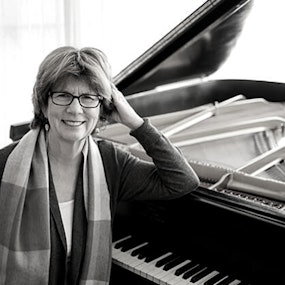
Liz Kinnon
Jazz Pianist, Arranger, Composer, Educator, Film Coach
Liz Kinnon (pianist/arranger/composer/educator/film coach), a native of Los Angeles, has performed all over the world with numerous artists including Dizzy Gillespie, Andy Williams, Barbara Morrison, Sherwood Sledge, Kenia, Octavio Bailly, and Jackie Ryan.
Ms. Kinnon’s songwriting credits include Say Goodbye on Kenia’s Love Lives On CD and her arrangements have been featured on a variety of recordings and live performances including The Duke Ellington Memorial Concert with legendary jazz greats Pepper Adams, Sonny Fortune, and full orchestra; strings for Sandy Graham’s 2003 CD, By Request; tracks on jazz vocalist Jackie Ryan’s last three CD releases and ongoing performances. In May 2007 Ms. Kinnon was commissioned to write and perform her own arrangement of Smile with Maiden Voyage (17-piece big band) at the Kennedy Center’s “Tribute to Women In Jazz” and returned in 2010 for a concert to honor jazz icon Mary Lou Williams.
During the 1990s, Ms. Kinnon worked as an orchestrator for Emmy award-winning composers Richard Stone, Steve Bernstein, and Tim Kelly on cartoons Animaniacs, Pinky and the Brain, and Histeria; also for composer Shirley Walker on the feature film Mystery Men. Liz went on to compose and record the scores for the documentaries The Life and Times of Jean DePaul (2005) and Nicole Wood: Cars & Beauty (2012) in Los Angeles, CA. She has worked in music preparation for hundreds of films, live performances, and television shows including many years on the music team for the Academy Awards.
As a young faculty member at the Dick Grove … Read More










